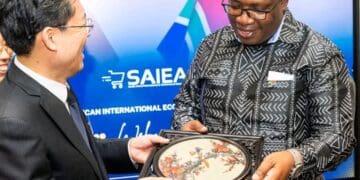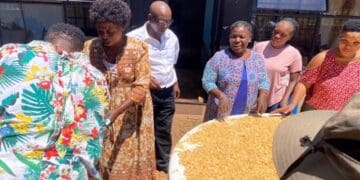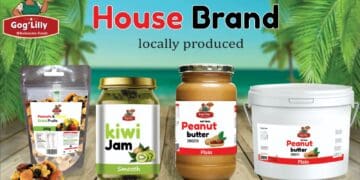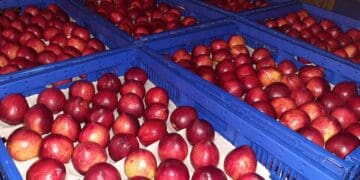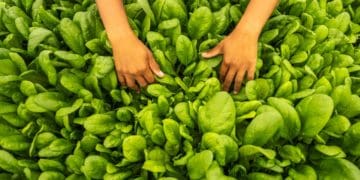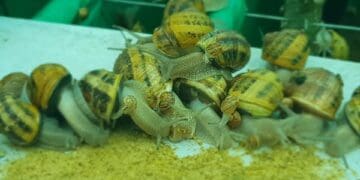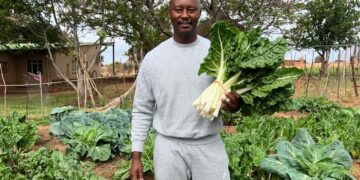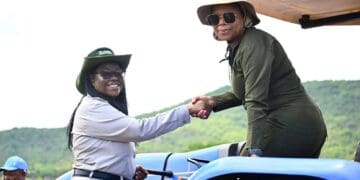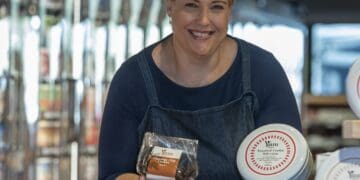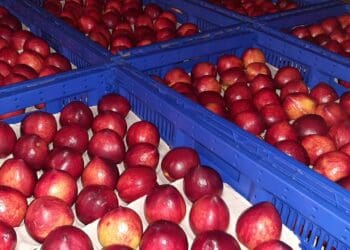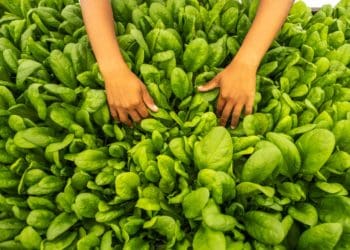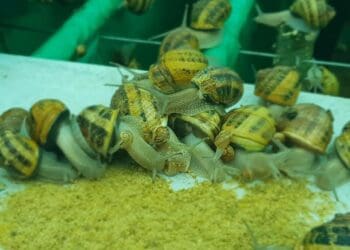By Noko Mashilo
Izintaba Crocodile Farm, a business based in Pretoria North is making a mark in the growing global crocodile farming and export business.
The farm primarily exports raw wet salted skins, which are processed into luxury leather items such as handbags, belts, shoes,# and apparel.
“Crocodile meat is another key product, valued for being a lean, high-protein delicacy. It is sought after in both local and international markets, particularly in Europe and Asia, where there is a growing demand for unique and sustainable protein sources,” crocodile farmer Collin Chauke told Vutivi News.
Chauke, who initially wanted to go into broiler farming said crocodile oil, extracted from the animal’s fat, was widely used in the skincare and cosmetics industry due to its healing and moisturising properties.
“This segment is expanding in export markets such as the UK, USA and Asia,” he noted.
Additionally, he collaborates with tertiary institutions to provide training and education on crocodile farming and abattoir operations.
Chauke’s journey into crocodile farming is a testament to his unwavering determination and perseverance. After a five-year wait to secure land through the government’s land reform and restitution process, he overcame numerous challenges to establish himself in the industry.
He is now a certified and competitive export operator, successfully managing Izintaba Crocodile Farm alongside his business partner, Raymond Oliphant, in northern Pretoria.
With approximately 6,000 hatchlings per cycle, Chauke has positioned himself as a key player in the sector, contributing high-quality crocodile products to the international market.
Chauke, 40, said that the journey of Izintaba Crocodile Farm began with an initial vision to enter the industrial broiler farming sector in 2013.
“Through the Department of Rural Development and Land Reform’s Proactive Land Acquisition Strategy (PLAS) programme, my business partner and I applied for land and discovered Izintaba Crocodile Farm during our search.
“Initially, we considered converting the farm’s infrastructure for broiler farming, but government policies made this unfeasible,” he explained.
“There was a significant lack of black participation and transformation in the industry. The sellers provided us with valuable insights into the opportunities within crocodile farming, which inspired us to take up the challenge. After five years of waiting, our acquisition of the farm was finalised in 2018.”
One of the greatest challenges they faced was a lack of policy support.
“The government still lacks sufficient knowledge of this industry, making it difficult to seek intervention or assistance. We believe the government can play a crucial role in addressing this issue, as it remains an ongoing challenge,” Chauke stated.
Providing insights into the specialised occupation, Chauke explained that for reproduction they collected eggs from the breeding dams and incubated them for 90 days until they hatched.
“In husbandry, we ensure hatchlings, yearlings and growers are raised in a clean, hygienic environment with proper feeding. When harvesting, crocodiles are taken to the abattoir for meat and skin processing.”
At Izintaba, sustainability is a key priority.
“We ensure that our farming practices do not endanger wild crocodile populations. By adhering to strict regulations and sustainable breeding practices, including standard operating procedures, we reduce pressure on natural habitats and contribute to conservation efforts,” he said.
Chauke believes the crocodile farming industry has seen a notable shift towards more sustainable practices.
“This trend is driven by increasing consumer awareness of ethical and environmentally responsible production. A significant development has been the introduction of the International Crocodilian Farmers Association standard, which sets guidelines for sustainable farming, animal welfare and environmental practices,” he explained.
He also highlighted the industry’s growing appeal to high-end markets, particularly in fashion and luxury goods.
“As a result, more farms are aligning with sustainable practices to remain competitive and ensure long-term industry growth,” said Chauke, who is registered with the Convention on International Trade in Endangered Species of Wild Fauna and Flora (CITES).



